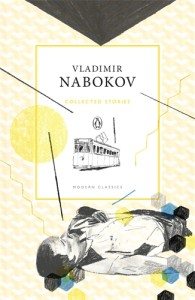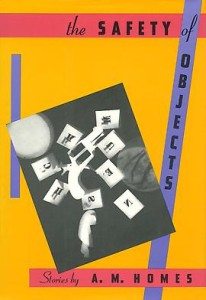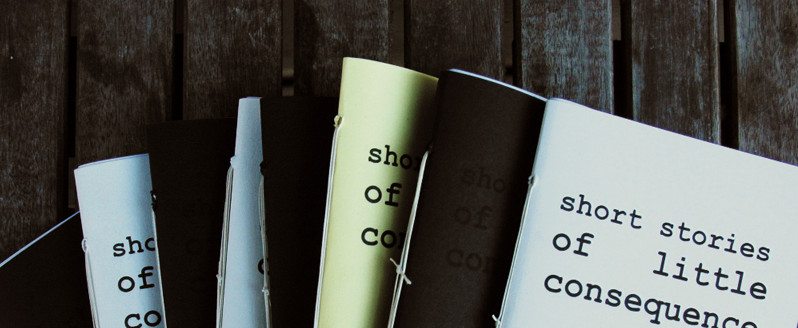The greatest short stories ever written
[dropcap]W[/dropcap]hen your work-load is piling up and you need a fiction quick-fix, short stories offer the perfect remedy. This nifty form provides all of the literary entertainment that comes from a novel, but requires just a fraction of the commitment and energy.
If you’re not convinced yet, three writers are here to win you over, sharing their favourite short stories and explaining why you should be reading them.
Signs and Symbols by Vladimir Nabokov
“For the fourth time in as many years, they were confronted with the problem of what birthday present to take to a young man who was incurably deranged in his mind.”
 Nabokov’s short story, Signs and Symbols, concerns the visit to a sanatorium by the parents of a young man, where they are told that their son has again attempted to take his own life. Concerning the young man’s motivation, we are later told that, “What he had really wanted to do was to tear a hole in his world and escape.” The parents head home, in despair of the “invisible giants hurting (their) boy in some unimaginable fashion.”
Nabokov’s short story, Signs and Symbols, concerns the visit to a sanatorium by the parents of a young man, where they are told that their son has again attempted to take his own life. Concerning the young man’s motivation, we are later told that, “What he had really wanted to do was to tear a hole in his world and escape.” The parents head home, in despair of the “invisible giants hurting (their) boy in some unimaginable fashion.”
The fictitious condition that afflicts the boy is called “Referential mania”. We are told that, “In these very rare cases, the patient imagines that everything happening around him is a veiled reference to his personality and existence.” He is not, however, merely paranoid about the whispers and glances directed at him by strangers. He appears to make no distinction between a human and his surroundings, and his condition even extends to being convinced that his “inmost thoughts are discussed at nightfall, in manual alphabet, by darkly gesticulating trees.”
I can only implore you to go and find a copy of this story immediately, and I expect to be thanked in broken tones. Apart from the hauntingly absorbing plot, the story contains some of Nabokov’s very best writing. Nabokov and his Jewish wife actually had to flee Nazi Germany in the thirties, and this story contains one of his very rare references to the Holocaust, which appears when the mother is looking through a photo album: “Here was Aunt Rosa, a fussy, angular, wild-eyed old lady, who had lived in a tremulous world of bad news… until the Germans put her to death, together with all the people she had worried about.”
Nabokov has performed his own literary sleight of hand
The prose is abnormally precise and accomplished, even by his high standards, and scholars have penned hundreds of pages in an attempt to elucidate and decode its myriad symbols, allusions and references. And so it can be a little unnerving when one eventually realises that Nabokov has, in the form of the “incurably deranged” patient, drawn a portrait of his own readers. By reading too much into the story, we become convinced that there are hidden mysteries contained in apparently opaque sentences. We as readers have become sufferers of “Referential mania”, tricked and misled by Nabokov’s signs and symbols.
Jordan Hindson
Loss of a Halo by Charles Baudelaire
Equally famed for his prose and his poetry, Baudelaire is the archetypal painter of modern life, with a snapshot style of writing that seeks to capture the transient beauty (and the beautiful transience) of life in the metropolis.
Baudelaire’s shorter-than-short story, Loss of a Halo, is more a vignette than a full-scale narrative, much like the rest of the Paris Spleen prose-poetry anthology. His tales are momentary glimpses into other lives; they plunge you into the urban crowd and bring you up close to its oft-ignored members: the fool, the clown, the beggar.
High literary culture, says Baudelaire, need not have high subject matter to be of value
The short story is, by name and by nature, a succinct form. As such, the finest examples are those that give the most information in the smallest space, in the most creative ways. Baudelaire spends less than one hundred words crafting a perfectly ordinary meeting between two old friends, before cheekily and casually undermining the normality of the situation by having one speaker recount: “my halo slipped off my head and fell into the mire of the macadam”. It’s too late for us to question this divine development; we are too quickly borne along by our own curiosity.
 As if the absurdity of seeing an angel hanging out in a Parisian drinking den was not enough, Baudelaire further subverts our expectations with characteristic brevity. The unnamed angel seems delighted that he, passing for an average Joe, “can now go about incognito, be as low as I please and indulge in debauch like ordinary mortals”.
As if the absurdity of seeing an angel hanging out in a Parisian drinking den was not enough, Baudelaire further subverts our expectations with characteristic brevity. The unnamed angel seems delighted that he, passing for an average Joe, “can now go about incognito, be as low as I please and indulge in debauch like ordinary mortals”.
Whether he is mocking or in support of this claim we do not know, but Baudelaire proffers the view that to be human, no matter how low, is worthy of an angel’s jealousy. And yet the story’s denouement almost immediately undercuts this celebration of humanity. The angel fantasises about how “it is perfectly delightful to think of some bad poet picking [the halo] up and brazenly putting it on”. Yes, the angels think much of us, but for God’s sake don’t get smug about it – even if you are Baudelaire himself.
The charmingly bracketed structure of Loss of a Halo does flags up a wide range of philosophical queries in a self-contained scenario, while also giving the pleasure of following up these queries and filling in the gaps in our own heads. “Think of X! Think of Z!” urges the angelic narrator – an instruction that, thanks to the freedom of thought it offers, feels impossible to ignore.
Phoebe Demeger
A Real Doll by A. M. Homes
A Real Doll is a story about a little boy who undergoes a sexual awakening by experimenting with his sister’s Barbie dolls. It’s an unnerving rabbit-hole of a story, which swings back and forth between relatable forays into a young boy’s innocent experimentation, and an alarming glimpse into the mind of an abuser-in-training, self-medicating with dangerous doses of his mother’s Valium and losing himself in an impossible fantasy.
Our narrator practices dating with Barbie three times a week. In the beginning he’s too nervous to touch Barbie’s waist; he has to carry her around by her feet. He frets that he’s no good at kissing and feels like a sloppy St Bernard. But A. M. Homes makes sure you can never get your footing whilst reading this story. Our innocent narrator ‘drugs’ Barbie with crumbled up Valium and plies her with increasingly aggressive sexual behaviours. As soon as you think you understand the characters, they do something completely unpredictable and you have to re-evaluate them entirely in order to follow what happened.
Reading this story is a pretty helpless experience; you just have to let the events unfurl and accept that you have no idea where it’s going
 To be clear, Barbie is characterised as reasonably autonomous. While she doesn’t move around by herself, she hold conversations and acts independently of her ‘boyfriend’. But as the relationship becomes more explicitly sexual, the narrator’s fantasies about Barbie start to crumble away. Barbie’s remarks start veering into the kid of clichés you hear from every pornographic video every shot, and the kid admits that, yes, he knows she’s not really talking and he’s making up all of Barbie’s dialogue. But he doesn’t stop.
To be clear, Barbie is characterised as reasonably autonomous. While she doesn’t move around by herself, she hold conversations and acts independently of her ‘boyfriend’. But as the relationship becomes more explicitly sexual, the narrator’s fantasies about Barbie start to crumble away. Barbie’s remarks start veering into the kid of clichés you hear from every pornographic video every shot, and the kid admits that, yes, he knows she’s not really talking and he’s making up all of Barbie’s dialogue. But he doesn’t stop.
The commentary of a boy being romantically involved with a literal object should be pretty evident here. This is a story about possession. Our child narrator continuously pushes the boundaries, trying to understand to what extent he can really ‘own’ Barbie, and his interest in her doesn’t die until he finds this limit.
This is one of my favourite short stories because it is so unabashedly weird, and gives you more to think about than you can manage in one sitting. It’s obsessive, dark and magnetic, and it has a lot of reread value because there are so many nuances to the narrator’s character.
One warning, though: you’ll never look at a Barbie doll the same way again.
Hannah Frogatt
Image Credits: Header (Flickr/Mehmet Nevzat Erdoğan), Image 1 (penguin.co.uk), Image 2 (waterstones.com), Image 3 (amhomesbooks.com).

Comments (1)